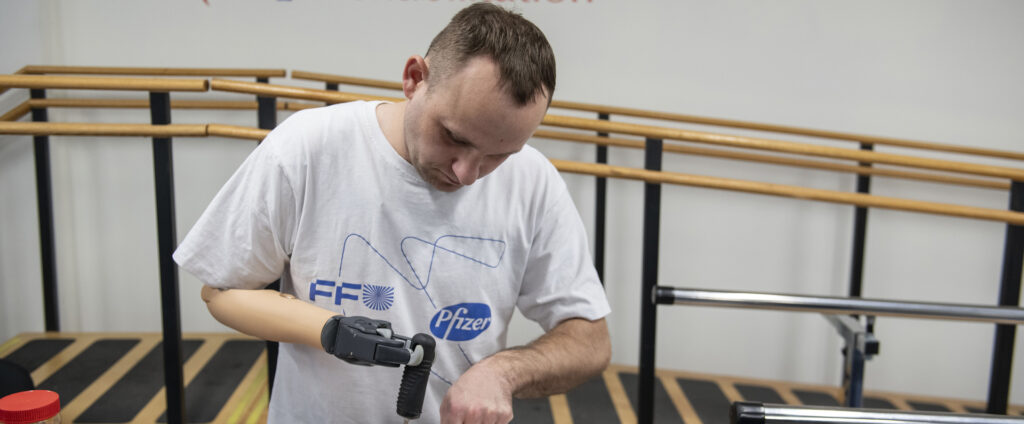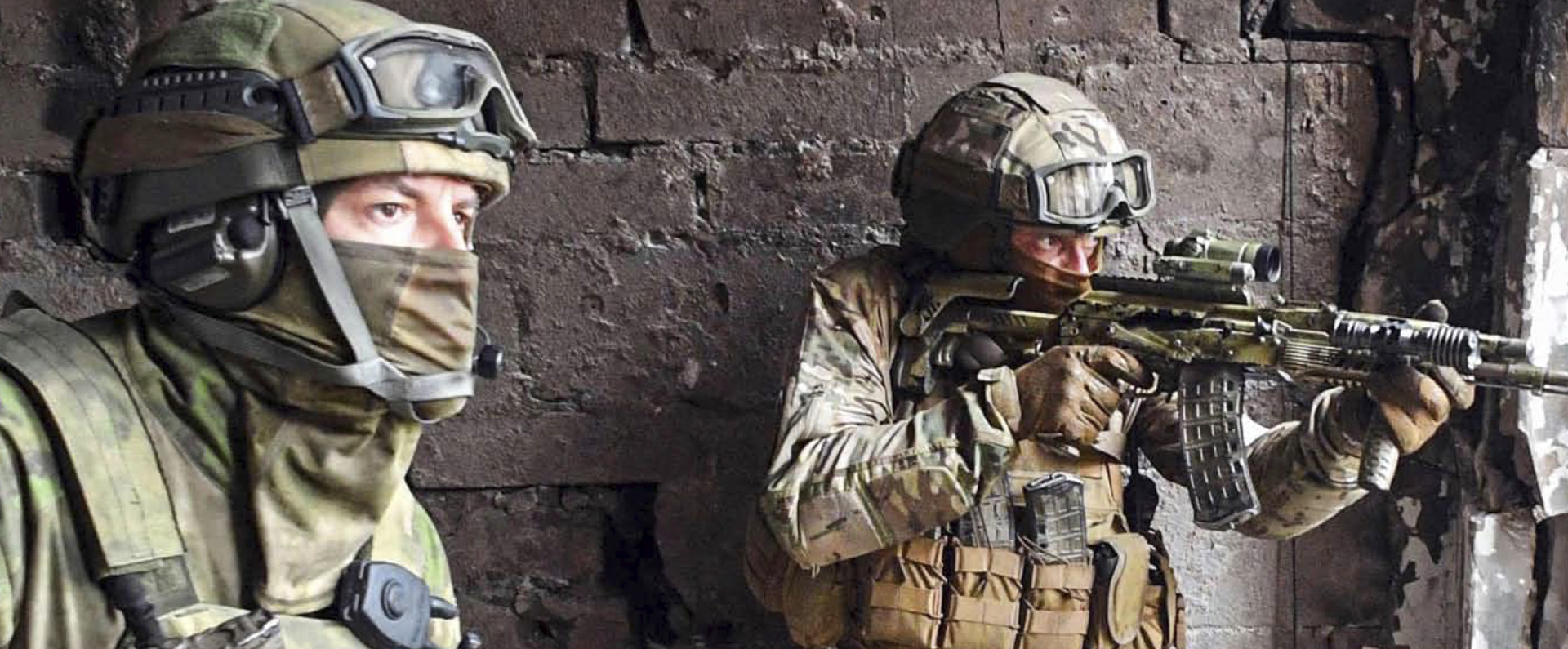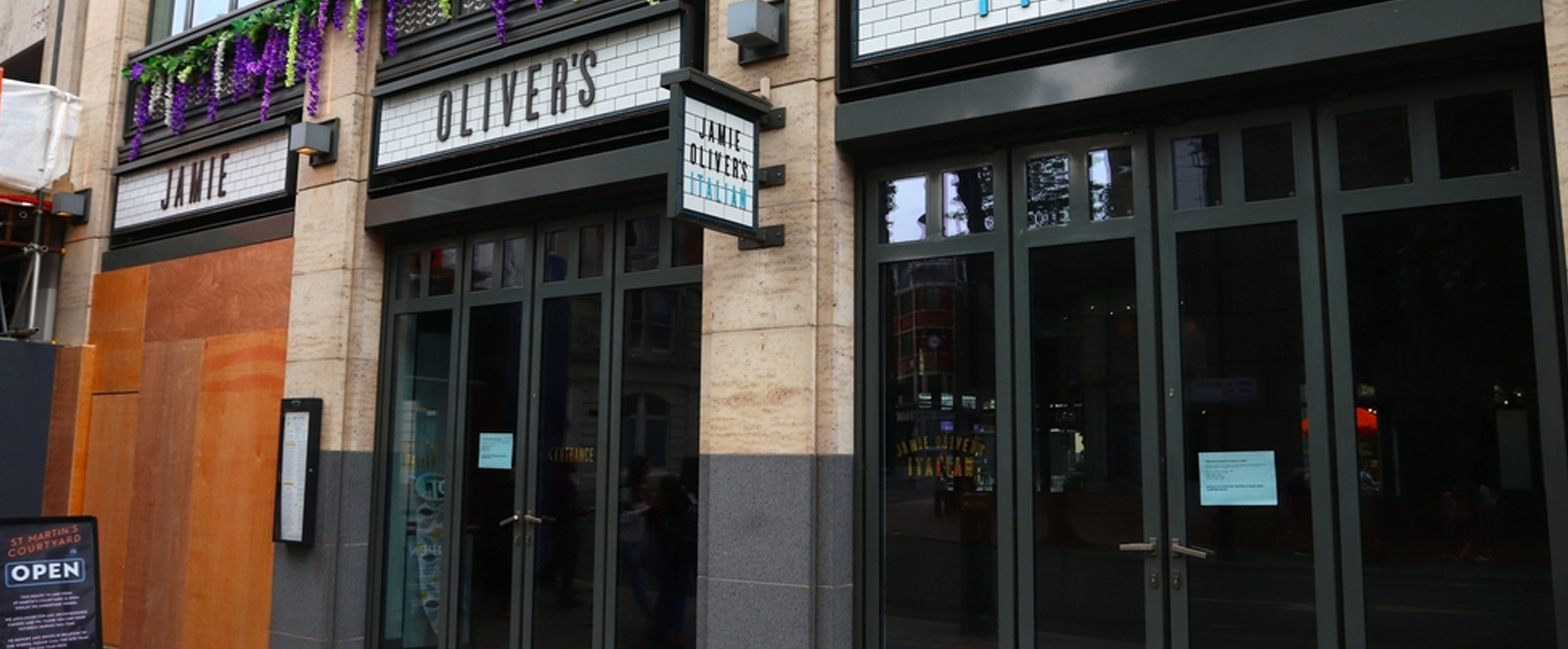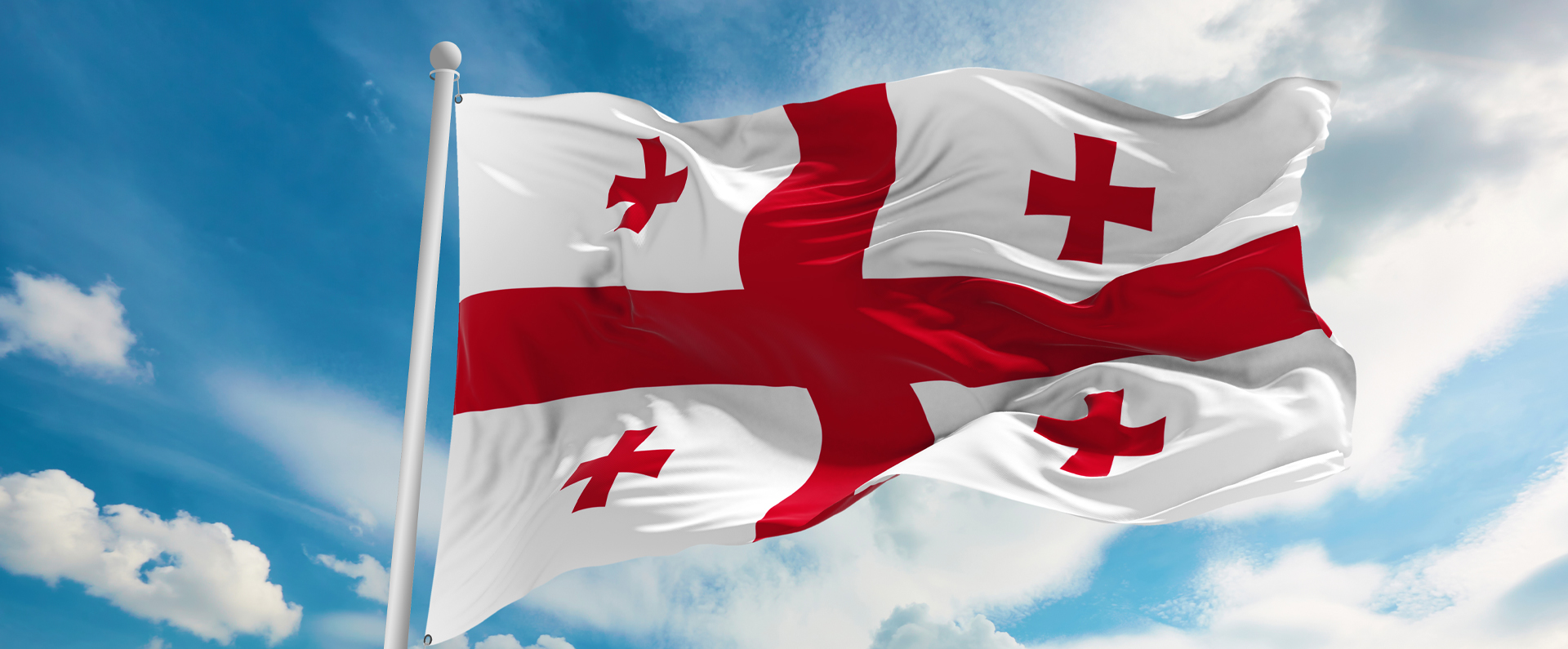
Published in the Sunday Express on 07 April 2024.
EXCLUSIVE – Lord Ashcroft visits a US clinic helping severely injured Ukrainian soldiers straight from the frontline.
It is a 10,000-mile return journey that has given him hope after despair. Andriy Klymchuk was at an all-time low after being horrifically wounded by an artillery shell while serving on the frontline in Ukraine’s brutal war with Russia.
His injuries resulted in him having to have his right arm amputated above the elbow and losing his right eye. With hospitals in his home country at breaking point, he received only basic medical care and no prosthetic limb to enable him to carry out simple day-to-day tasks.
Now, some six months after receiving his life-changing injuries, he has been flown to a medical centre on the outskirts of Washington DC, the US capital, which is successfully treating dozens of the worst injured amputee Ukrainian servicemen from the war.
Andriy, 33, a career soldier who has served in the Ukrainian army since Russia illegally annexed Crimea in 2014, was injured on September 24 last year during some of the heaviest fighting of the war in Bakhmut.
He was evacuated from the battlefield and later underwent surgery. For two weeks, he was on a ventilator and in a coma. There is still a sadness in his eyes which indicates the extent of the trauma he has been through coming to terms with his injuries.
The results of Andriy’s short stay in the US are remarkable as I witnessed when I visited the Medical Center Orthotics and Prosthetics – a world leader in treating combat injuries – just days before he was due to return home after five weeks of high-level care.
“My life has changed for the better as a result of my visit here. I am now more independent and I can do a lot of basic things. Using my prosthetic, I can take care of myself – dress myself, I can use a knife to cut and I can cook,” he told me.
Andriy, who serves in the rank of lance sergeant, is married with one daughter and another baby on the way. I asked Andriy what the future holds for him after leaving the centre and he replied that it now looks bright. “First of all, I am looking forward to becoming a father for the second time. Then I will buy a new apartment and continue to serve in the army, training new soldiers,” he replied.
Like most soldiers who come to the centre after losing an arm, he has a prosthetic with two different hands – one to look good aesthetically, the other with a grip that can help him carry out day-to-day tasks.
Typically, each serviceman, or woman, is assessed on arrival at the medical centre in the suburbs of Silver Spring. An impression is taken of what remains of his, or her, amputated arm or leg and, within 48 hours or less, a purpose-built prosthetic is made and fitted. Each artificial limb typically costs thousands of pounds.
The patient then spends the next five weeks receiving rehabilitation and training to enable him, or her, to use the new artificial limb with maximum efficiency. Those with prosthetic arms are taught routine tasks such as how to dress, how to hold cutlery, and how to hold a cup. Those with prosthetics legs are taught how to walk again.
However, the patients are also given fun days out where they experience how to kayak and to fish. The sophisticated prosthetics are bionic and they use sensors to detect electrical signals from the user’s residual muscles.
The servicemen receive entirely free treatment and care. All their costs for flights, lodgings, components for their artificial limbs and other expenses are paid for by three main charities: Future for Ukraine, based in Kyiv, and the Brother’s Brother Foundation and United Health Ukraine, both based in the US. Then the medical centre, which is a commercial business, provides its expertise, therapy and training for free – more than £3 million, of “pro bono” care to date.
During my visit to the centre, I also met Pavlo Ponomarenko, 27, a single man. He had worked as a construction worker until the February 24 2022 invasion of his country by Russia. Soon afterwards, he was mobilised as a stormtrooper, training as a machine-gunner.
Pavlo was badly injured by an artillery shell during fighting in the Zaporizhzhia region on October 26 last year. He was evacuated from the battlefield and surgery was later carried out to amputate his left arm close to his shoulder.
Like Andriy, Pavlo received only basic care in Ukraine and was not given an artificial arm. Like Andriy, he was identified for special care and later aided by charities in order to travel to the US.
“The treatment here at the centre has helped me greatly. Every single day, I learn how to use the prosthetic better and better. It will help me to be absolutely independent,” he told me.
Pavlo now believes his future will be bright. “I haven’t made a final decision about what I will do next but I have a lot of ideas about what I can do,” he said.
Mike Corcoran, a former Olympic athlete who represented his native Ireland, co-founded the medical centre 22 years ago, initially making prosthetics for civilians, everyone from car crash victims to diabetes sufferers. He later began helping US servicemen injured in the wars in Afghanistan and Iraq. However, he says both the scale of the injuries sustained in Ukraine and the nature of their wounds is very different.
“With the wounded guys coming back from Afghanistan and Iraq, 90 per cent of them had lower-extremity injuries because of IEDs [Improvised Explosive Devices] and ten per cent had upper-extremity injuries, whereas it is 50/50 in Ukraine because of artillery shells and other reasons.”
He told me that his work is hugely satisfying because amputees leave the centre with new skills and new hope for the future. “I see these guys arrive here on crutches or in wheelchairs and then they walk home,” he said, clearly moved by some of the heart-warming stories he has encountered.
“They return to their country and they are functional. They can get jobs, they can go back into society. These people have [most of] their lives in front of them. If you can’t function, then every day is a reminder of what you lost. It’s a constant memory of what Russia has done to you.”
The centre took its first badly injured patient in August 2022, six months after Russia’s attempted invasion of its neighbour. The first injured soldier had been a choreographer before the war and he wanted to go back to his job after recovering from his injuries, even though he had to have one of his legs amputated at the hip.
Mr Corcoran said: “We fitted him with a prosthesis, he recovered well and he now works as a choreographer and his dance business in Kyiv is up and running again.”
Since treating that choreographer-turned soldier, a further 54 amputees have been given specialist treatment, including two women military personnel. The age of those treated has ranged from 18 to 58.
Mr Corcoran said that hospitals in Ukraine are overwhelmed with wounded servicemen and cannot cope without expert help from abroad. Badly-applied tourniquets and infection are adding to the problems faced by servicemen and those treating them. “The hospitals are doing their best to look after their wounded warriors but they simply don’t have the resources that they need,” he said.
Mr Corcoran and his team have been horrified by some of the stories they have heard: one Ukrainian soldier who they treated had been captured by Russian mercenaries from the notorious Wagner Group. The wounded soldier had two injured arms, one very badly damaged, the other only slightly damaged.
However, the enemy amputated both his arms above the elbows in the most haphazard way before making fun of him. He later had to watch his comrades being tortured and, unsurprising, after his eventual released, he suffered from PTSD (Post Traumatic Stress Disorder) on top of his physical injuries.
“You could see from his eyes that he had suffered real trauma. It is unbelievable what one human being is capable of doing to another. This was human on human violence,” Mr Corcoran told me.
Another amputee who was trapped for two months in the besieged city of Mariupol in the first half of 2022 had to have his wounded arm amputated by a comrade with a hack saw in order to survive. Later, after the wound festered, he had to have a second amputation at a higher level up his same arm.
Eventually, the soldier was released as part of a prisoner exchange scheme and later brought to the Washington DC medical centre for treatment, including receiving a new artificial limb.
The number of military casualties from the two-plus-years of war is not known but most authoritative, independent sources put the total number of dead and wounded from both sides at well over 500,000. Thousands more civilians have been killed and injured.
Mr Corcoran has visited Ukraine twice during the war. On his most recent visit, he was told that tens of thousands of wounded Ukrainian servicemen have suffered amputations as a result of the war – a staggering figure. Some have suffered the loss of both arms and both legs, along with other dreadful blast injuries.
The main purpose of his recent visit was to look for a site for a new £2.4 million medical centre for their work in Kyiv. “Long story short, we can only see as many patients as can come over here. But we can be even more effective when we are there [in Ukraine].
“So we went over and we found a building in Kyiv where we want to build a centre and treat a lot more people. We can have a larger impact on these wounded soldiers if we are based in the country.
“Aside from that, we see that [many of] these people who are fitted with their prosthesis don’t have jobs. So our goal is to train Ukrainians to take care of Ukrainians, and we want to hire them and give them employment. We have already identified three people who we have provided prosthetics for to train them so they can make prosthetics for their ‘brothers’. Our goal is to process about 20 amputees a week [at the new centre].”
Mr Corcoran, 58, originally from Dublin who is married with twin daughters, remains confident that, at the end of the day Ukraine will win its war. “I feel Ukraine will prevail, it will enter into the European Union and eventually it will be self-sufficient. I had the pleasure of meeting President Zelensky and my message to him was: ‘The numbers of amputees are staggering but Ukraine has the opportunity to become the world leader in amputee care’.”
I left the centre full of admiration for the inspirational work of Mike Corcoran and his team – as well as the courage of those they are treating. It was deeply moving to learn about the huge progress that Andriy and Pavlo, and dozens before them, have made in little over a month at the centre.
The efforts of the American-based team to improve the lives of wounded servicemen come at a time when the war against a bigger, stronger aggressor is not going well for Ukraine, mainly due to a lack of weapons and ammunition.
So my impassioned plea is that we all – nations, politicians, aid groups and even individuals – must do our bit to help Ukraine and its people in their hour of need.
• Anyone wanting to donate towards helping badly-injured Ukrainian servicemen receive prosthetics at the Medical Center Orthotics and Prosthetics should visit: brothersbrother.org.
Read this article on Express.co.uk
DOWNLOAD PDF


